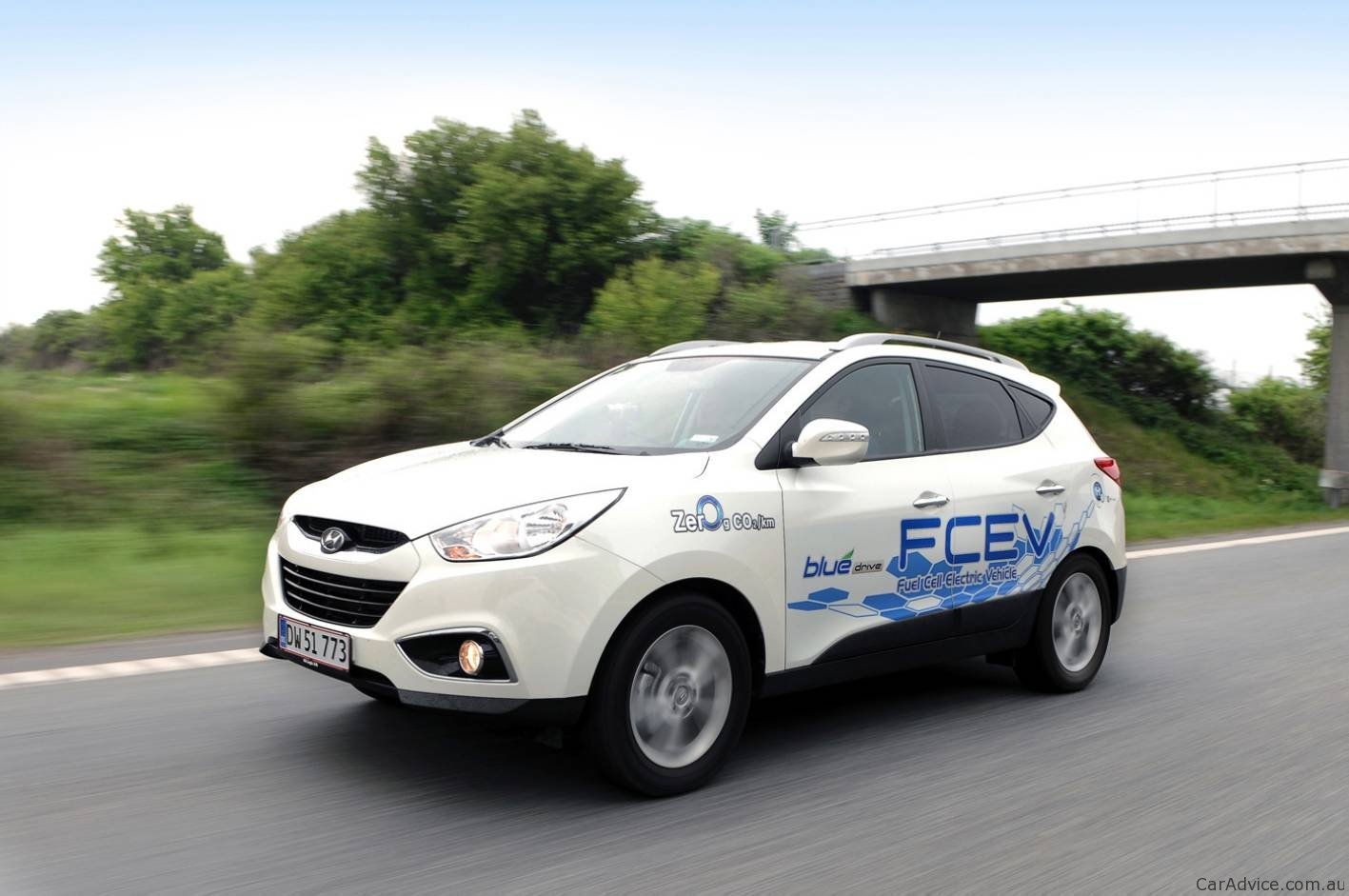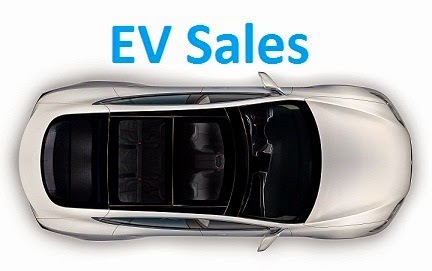We take a look at Fuel Cell vehicles sales performance in the first half of 2017, after the introduction of the Toyoa Mirai in 2015, FCEV's are on their Year Two, more or less where EV's were in 2012, so if they follow the same growth curve as plug-ins, we should see this technology reach 100.000 sales this year.
Well, is it going to reach six digits? At 1.602 units registered this year, up 39% YoY, it is well below that, if they reach 5.000 this year, it will already be a good result
Well, is it going to reach six digits? At 1.602 units registered this year, up 39% YoY, it is well below that, if they reach 5.000 this year, it will already be a good result
But let's look at the individual performances of the three models currently on sale:

Toyota Mirai - 1.169 Mirai were registered in 2017, a small step above the 1.020 of the previous year, but well below expectations. I had thought the model would be selling around 1.000 units/month, so...Why the slow sales?
Honda Clarity FCEV - 359 units were registered in the first half of its first full sales year, well above the 113 units of 2016, its landing year, but below expectations (1.000 units in the first half of 2017). But the interesting thing here is that Honda, maybe realizing the upcoming disaster, decided to make the car available also as PHEV and BEV. It will be up to the consumer to decide what to pick, and i bet both the BEV and PHEV will outsell the FCEV version...

Hyundai ix35/Tucson FCEV - Numbers of the Korean Fuel Cell dropped slightly regarding 2016, with 74 units being registered this year. A discontinued model in its ICE form, and currently being done by special order, it is amazingly still the best selling FCEV in Europe, with 46 units.
 |
If the Model 3 is BMW's boogeyman, imagine what it should be to Fuel Cells...
(Spoiler alert: Diapers needed)
|
Looking forward, the upcoming 2018 Hyundai FE Fuel Cell may be the technology last chance to survive, said to have 800 kms range and, crucially, cheaper than the 65.000 euro, it could be the break out model needed to reach the tens of thousands units per year, the minimum needed to start creating economies of scale.
Thing is...2018 will be Year One of the EV entry into the mainstream, with exponential growth and at least three models surpassing the 100.000 units sales per year (Tesla Model 3 - 300k; Nissan Leaf II - 150-200k; Toyota Prius Prime/PHV - 120k), and the Chinese market continuing to grow in large volumes, the economies of scale for PEVs are becoming too large for Fuel Cells to follow suit.
And with no other automakers betting for real in FCEVs, it all looks that the technology will become a footnote in the passenger car history, possibly as part of a Fools Cell joke.
Now, regarding Heavy Duty Trucks and Buses, they could still have a shot of success here, but with with the Tesla Semi Truck coming in a couple of years and the Chinese BEV Bus makers preparing to invade foreign markets, the window of success is becoming smaller and smaller...

I think fuel cell technology for cars is basically doomed. An 500mile/800km range is approximately only one doubling of battery capacity away, which is pretty much certain to happen in the near future. Not to mention that BEVs will always be more economic by a large margin. (hydrogen production, compression and transport murders efficiency)
ReplyDeleteThat said I see a potential future for fuel-cells: airplanes, airliners with biofuel (not with silly hydrogen...) and solid oxide fuel cells (or something better if they invent it). (Note this also requires a move to propfans from jets, which again is a boost to efficiency)
Regrettably the technology that is doomed is pure BEV (with long range) - any way you look at it. In BEV too much energy is just wasted carrying a very heavy fuel storage around when not needed. Therefore long range BEV is entirely counter intuitive. The answer must be high efficiency "needed range (=low)" batteries with a renewable fuel REX (or similar PHEV system), or Fuel Cells. Pure long range BEV will not survive as the long term technology because of battery weight. And, battery weight improvements further advance PHEV's, at the expense of BEV's.
ReplyDeleteAlso, for fuel cells, the Tesla semi is the most pie in the sky of Musk's ideas. Current battery technology will simply not work in that extremely weight critical system (total weight, not just efficient weight matters).
Your logic is flawed. PHEVs or any such can't have a long therm future since they're fossil fuel based, which will run out. And the internal combustion engine part of it is just massively inefficient.
DeleteFuel cells are also a lot less efficient. Fuel cells are also a lot less efficient. The cells them selves, but also hydrogen production and compression.
Not to mention that the small weight handicap is less and less as battery tech improves.
In fact BEVs are the most efficient by a large margin.
Zsoft - in my initial note I said the REX should be fueled from a renewable fuel source (ethanol), which is not fossil fuel based. The collection of sun power as energy from corn ethanol or from solar cells are similarly competitive at this time. Dismissing the hypotheses of PHEV effectiveness because of an inappropriately proposed connection to fossil fuels is hardly good science.
DeleteRunning PHEVs on biofuel doesn't magically make them more efficient.
DeleteActually biofuels themselves are a lot less efficient than collecting the energy from the sun directly via solar cells.
Also bio fuel resources are really limited. You can't use them to drive all cars, especially with the poor efficiencies of an ICE.
You'd be better off to use them in fuel cells, and in aircraft, because they still can't compete with BEVs.
I forgot to mention that batteries for aircraft have no chance at replacing jets and fuels. They're just too heavy, and weight is cardinal with aircraft.
ReplyDeleteJet fuel holds 45-50 times more energy current batteries. Sure and electric aircraft would be more efficient, but on the other hand you don't use up the batteries during a flight.
hydrogen production, compression and transport murders efficiency
ReplyDeleteทางบ้าน